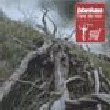|
|

Blankass Blankass (diminutive of 'blanc-cassis', the aperitif with white wine and blackcurrant), is one of the best French rock groups, with Noir Désir and Louise attaque. The band has existed since 1990. However, two musicians of the band already possessed a sound musical reputation at this time. Indeed, they founded in 1981 a punk band named Zéro de Conduite, only 10 years old. Essentially influenced by The Clash and Gun Club, they quickly signed with the label RCA, did concerts with Gun Club and U2 (Printemps de Bourges, France 1983), and with The Clash (Balard, Paris). They inaugurated Le Zenith (a famous concert hall in Paris) in 1984 with Charles Trénet and Jacques Higelin. After several 7" and the album Off The Track released in 1988 (with the re-issued Les Sucettes by Serge Gainsbourg), they splitted up in 1990... ... and started again with a new group named Blankass. J. Ledoux (guitar, banjo, mandolin, piano, percussion), G. Ledoux (voice, accordion), O. Robineau (drums), N. Combrouze (acoustic guitar), P. Ribeaudeau (flute, sax) and B. Marande (bass) chained up then 200 concerts for 4 years in France (small concert halls as far as Les Francofolies of La Rochelle) or in foreign countries (Les Francofolies of Montreal or Astafford ahead of 25000 people). Their first album named La Couleur des Blés (Musidisc,1995) sold about in 100.000 copies. Their influences are descended from their passions for Jacques Brel, Edith Piaf, Tri Yann or Noir Désir. After a new tour, including support for The Cranberries at Paris, and the prize 'Roger Seiller du Rock Français' awarded by the SACEM (spring 97), the band is back with a new album released September 2nd by their new label Universal Music, called L'Ère de Rien. This album confirms all the musical talent of Blankass, muscle and country rock scattered with Celtic tones, reminding sometimes of The Pogues. As usual, the lyrics are made up of simple but never naive stories about life, with a committed but never violent tone, and finally always tinged with optimism. There's also an encounter between Edith Piaf and rock music. The album begins with the song Pas des Chiens, setting the tone to the album through the text ("j'ai le teint fissuré des tours de mon quartiers / j'ai les yeux cimentés des murs des mon quartier") and the music (power of electric guitars). After L'Ère de Rien and Ce que tu n'es pas, with more melodic rock strains, close to the group Louise Attaque, the track Maître à Penser contrasts sharply with its pessimistic tone ("pas d'issue quand on veut changer / de nos rêves pleins d'argent restent les cendres"), pessimism illustrated by the desolate landscape on the record sleeve. Startling contrast then with D'où je Viens, with more joyful sonorities, and Le Fil de l'Epée, with its Celtic rock (accordion). After Le Silence est d'Or, close to Noir Désir, Blankass re-issues a very good version of Death or Glory from The Clash. But the band is certainly more comfortable with French lyrics. After the illusory rebellion of La Belle Armée ("j'avais rêvé d'écouter nos voix se lever, gueuler qu'on est un feu de colère allumé"), and Tous Contre Un, the album ends greatly with the surprising Tango du Dedans, a very good "tango-rock" (!). L'Ère de Rien may be, like the first album, the consecration album for a band awarded by the 'révélation de l'année 97 en France' and 'groupe Français de l'année 98' prizes (respectively the 97' revelation band in France and the 98' French group). Copyright © 1998 Patrick Dubail
|
| © 2011 Luna Kafé |